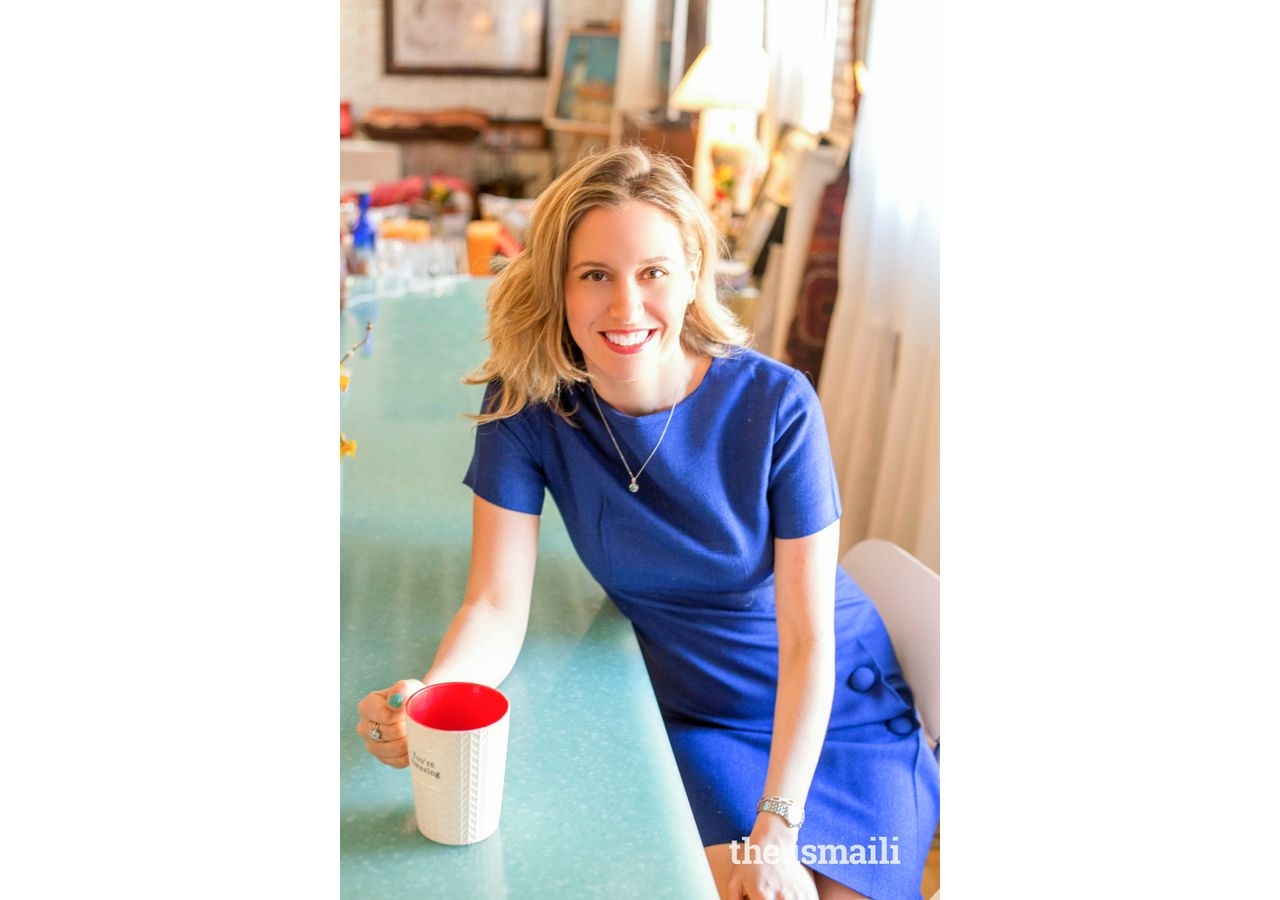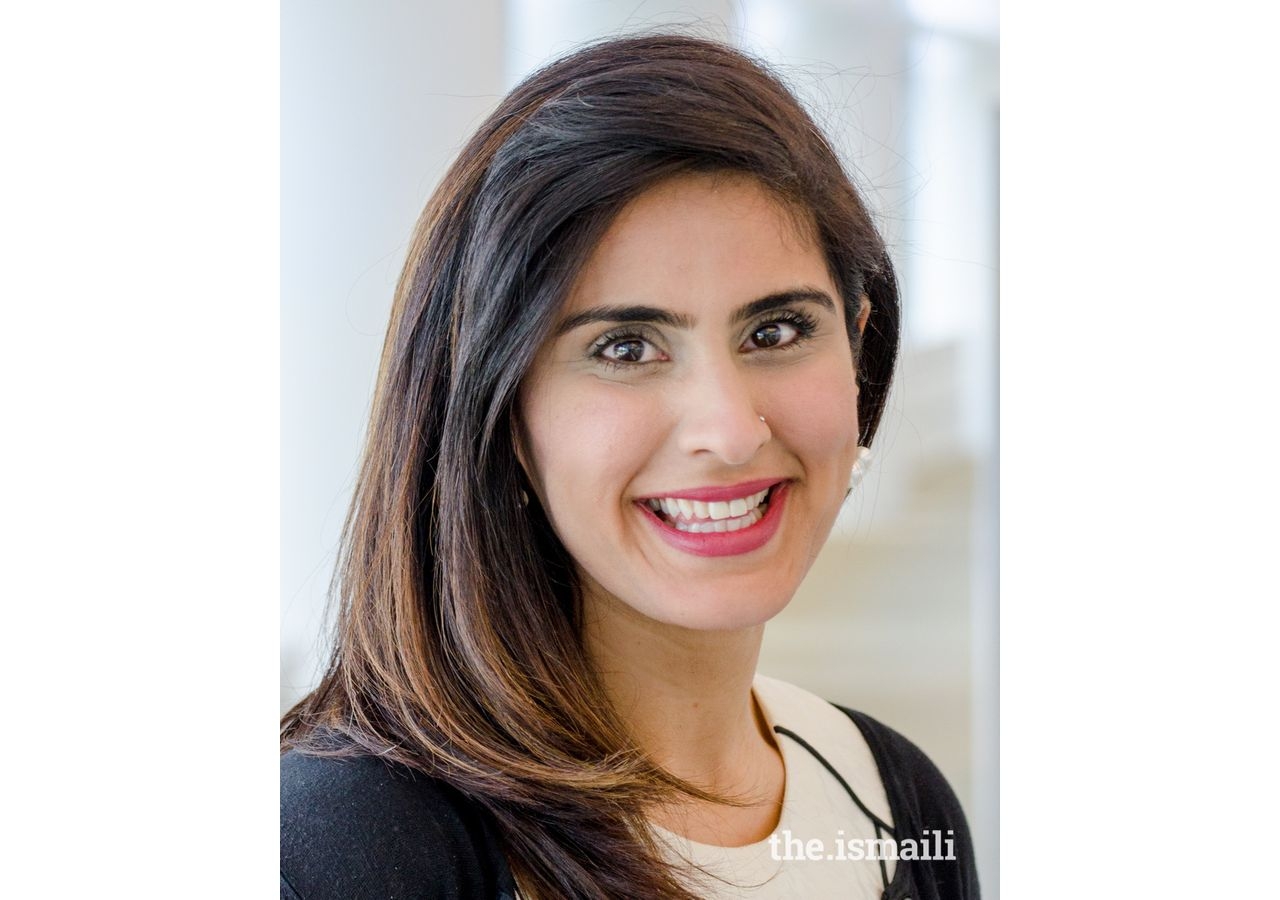Megan Jaffer was one of those women, and she highlighted the problem simply: “My husband is in the same industry, he has been for 20 years, and he’s never had to apply for a job. He was always brought along by a mentor or former boss.” Conversely, Megan spent over a decade trying to break into the field. She always aspired to be a governmental expert on East Asia, even spending 5 years in Korea to supplement her international relations background. But when she applied to the agencies, U.S. residency rules barred her from consideration. She moved to D.C. anyway to be close to the action.
Megan began her career in nonprofit management, but volunteered with the Intelligence National Security Alliance (INSA), ultimately building relationships with top-level officials. So, when the former INSA President moved to rebuild a company, she asked Megan to be Chief of Staff.
That was Megan’s entry. Ten years on, she’s still volunteering for their events, paying it forward—and it began in that room with 40 women. “There is a ‘Good Ol’ Boys’ network in D.C., and we said, ‘Well why don’t we create a ‘Good ‘Ol Girls’ network’?” Megan co-founded the Amazing Women of the Intelligence Community (AWIC), to provide that network and resulting opportunities. “There was no secret sauce, but it was getting the right women together who want to pull up their sleeves and get hard work done...and everyone played to their strengths,” Megan said.
AWIC grew organically to 800 members. It’s self-organized and funded, ensuring member-guided topics are covered. A recent event entitled, “Women Leaders, What Men Really Think,” featured an all-male panel who was grilled by 60 women asking “the questions we hesitate asking,” said Megan. Among the panelists were a Former Director of an Intelligence agency, CEO of a large government contractor, and a Navy Captain who wrote a book on men mentoring women.
On female mentors, Megan notes, “They’re out there. You do have to find them and do a little of the grunt work yourself.” She adds that regardless of your field, you need to have a hunger to learn, especially from people, “because you don’t know what you don’t know.”
Impacting Health Care Policy
Nafisa Jiwani also understands how important networks can be for life-changing outcomes. In March 2007, her sister-in-law was diagnosed with an unknown cancer, leaving Nafisa to discover how confusing the healthcare maze can be.
Nafisa was used to a revolving door of family in and out of hospitals, with her father passing away when she was 13. As an adult, she sought out advocates, “because otherwise, you’re just left on your own,” she explained. The cancer was identified as Ewing Sarcoma, a pediatric bone cancer found in soft tissue in the gut. “They caught it in the first phase, but had they waited until the second, she might not have made it because it’s so aggressive and they usually amputate,” she said.
Nafisa said her sister survived only because they had an extremely strong network of Ismaili oncologists who were pushing to figure out the best kind of care they could get her. “It’s unfortunate that a majority of Americans don’t have that network to navigate the healthcare system,” she said.
During this period, Nafisa quit her job, married, and moved to Atlanta to become the family’s full-time caregiver. Afterwards, realizing that she had a good understanding of the healthcare system, she began exploring healthcare policy programs and gained expedited enrollment in the Rollins School of Public Health at Emory. “If you think too much about what you’re having to do, and instead just say, ‘I need to put one foot in front of the other,’ it’s amazing what you can accomplish,” she said.
Upon graduation, Nafisa began working on public health initiatives at the Centers for Disease Control (CDC), where she helped broker a policy change with the Center for Medicare & Medicaid Innovation to ensure the Medicare Diabetes Prevention Program would be covered. The project garnered interest from the Director, and when he was appointed to another position, recruited Nafisa as Deputy Senior Advisor to the Secretary of Health and Human Services, to aid with prioritizing $10B for healthcare innovation, including utilization of artificial intelligence.
Nafisa’s work is focused largely on payment reform and policy, including prevention research and innovative modeling, to transform the health system. Using Emergency Department visits as an example, she said: “There is little they can do to help if you don’t have housing, food, a place to put your insulin, so you’ll continue to come to the Emergency Department spending $10,000 to $15,000 on every visit. We looked at those dollars and considered what would happen if we used them innovatively to ensure that patients are getting what they actually need? If you solve for the social issues beforehand, what kind of an impact will that make?”
Nafisa is finishing out her detail and considering her next opportunity to make the most impact in healthcare policy. “Whenever I make a decision, I’m thinking, how does it impact me, my family, the community; is it ethical, can it benefit our Jamat in some way?” she remarks.
Megan agrees. As a REC kindergarten teacher, badged volunteer, and mother, she draws strength from the Jamat and recognizes its support over the years. “I think that my path has been so fruitful because I didn’t have that straight path,” Megan said. “Every bump, fork, decision, every job – good and bad—has made me who I am and taught me something. There’s always a purpose, and you may not see it in the moment, but you have to persevere.”









